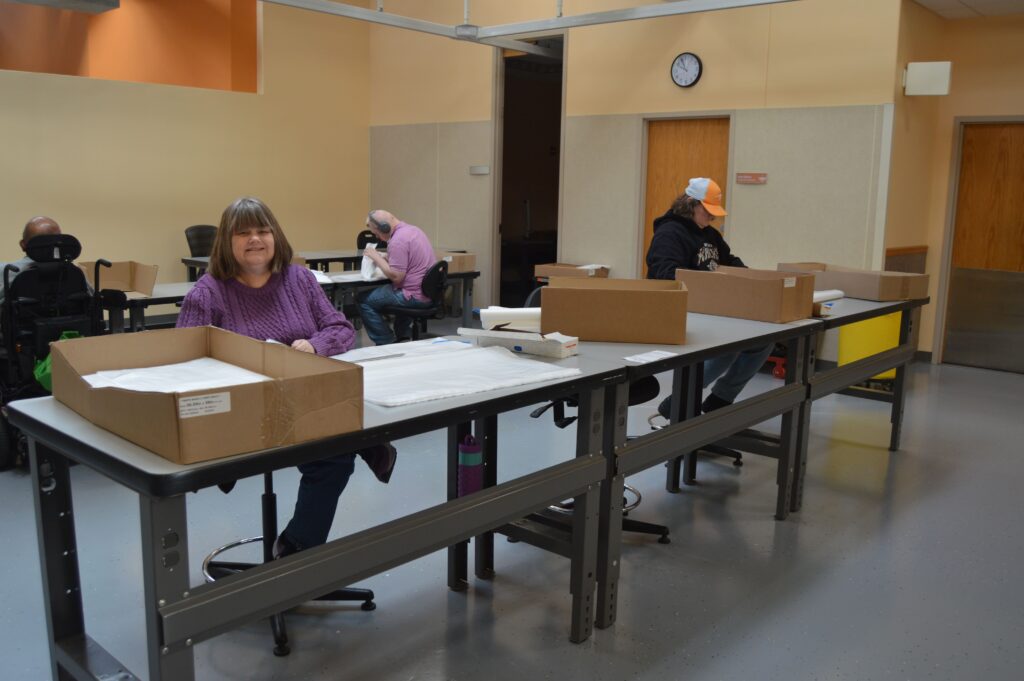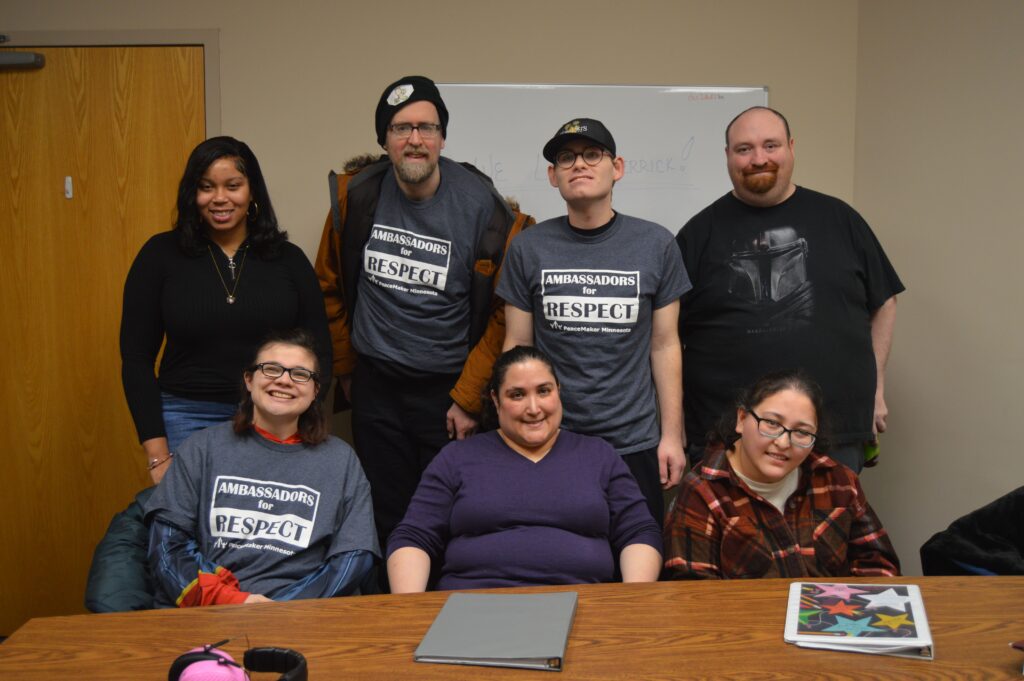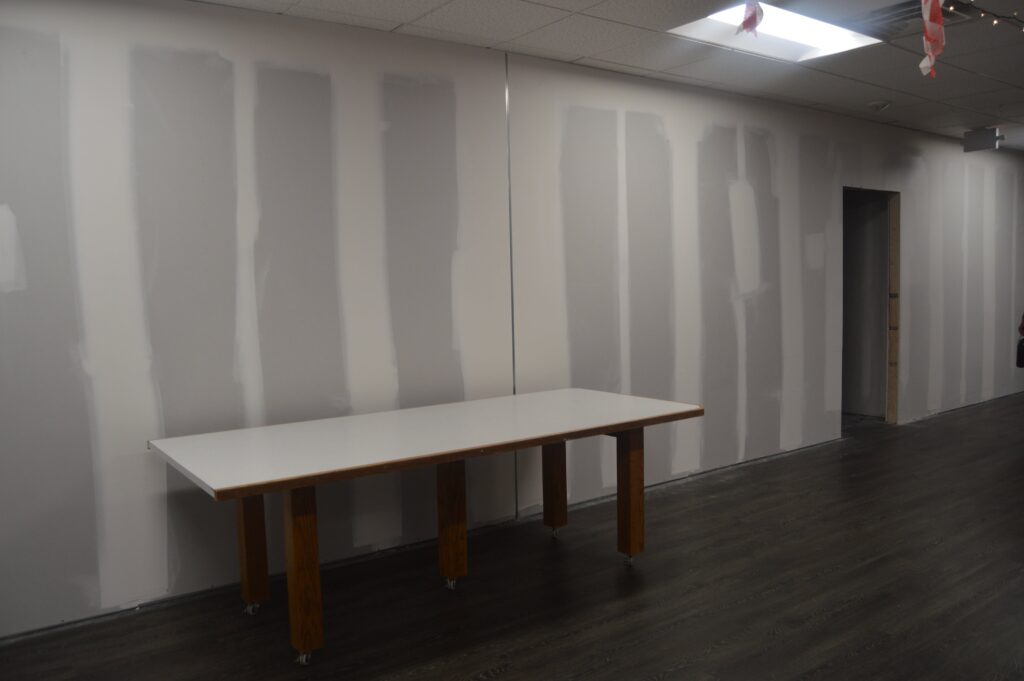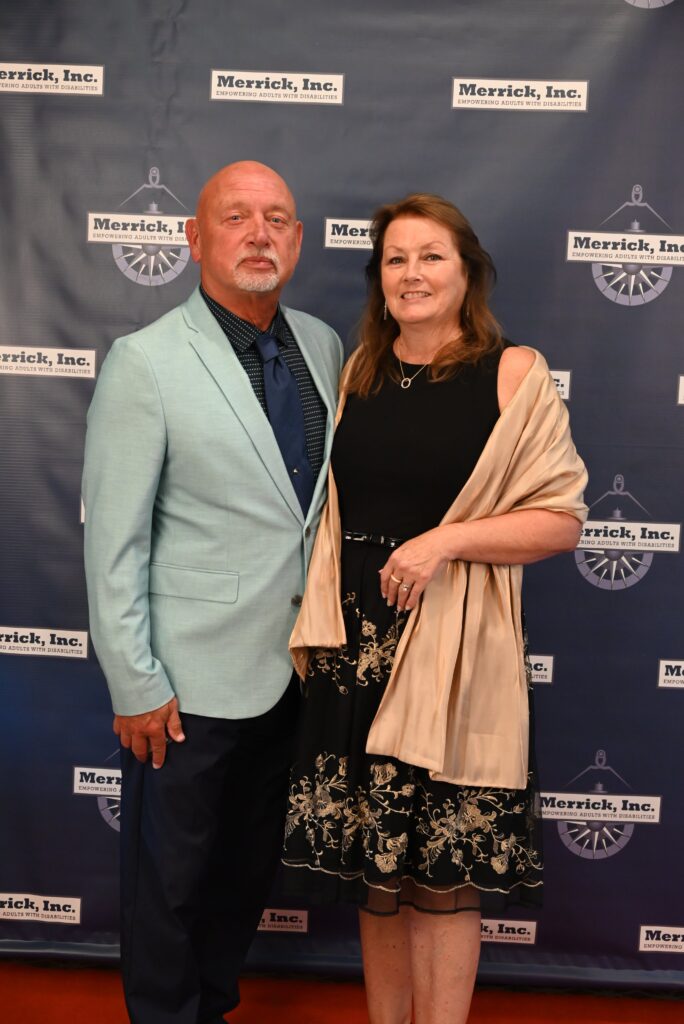Bark’s Bytes #44 (the nice version)
Published March 25, 2025
It has been four years since I published a Bark’s Bytes because I believed that the voices of people with Intellectual or Developmental Disabilities (I/DD), and their families, would convince the Department of Human Services (DHS) to honor their voluntary and informed choice to earn a special minimum wage (SMW). Yet, someone snuck language to eliminate 14(c) into the Governor’s Labor Policy bill and on 3/11/25, SF2149 was introduced by Senator McEwen to the Senate Labor & Industry Committee to eliminate this choice for more than 5,000 Minnesotans with I/DD and 200+ at Merrick. Thankfully, Senator Lieski offered an A(1) amendment to strike the language eliminating 14(c). When DFL Senator Hauschild voted with the four GOP members on the amendment, it resulted in a 5 to 5 tie and Senator McEwen asked the Committee to send the bill to the Human Services Committee without a recommendation. That motion passed and it is now scheduled for a 3 pm Human Services Committee hearing on 3/17/25. A clear loss for DHS and its sycophants. So, with 45 years in the disabilities field, the last 27 leading an exceptional day program, and retirement on the near horizon, I am going to see if Peggy Noonan is right that “One of life’s pleasures is taking a stick to people and things that deserve it.”
A stick to the arrogant. You have what I call the “Nineteen Nincompoops” that are pushing this legislation. They are: Naveh Eldar of ArcMN; Jillian Nelson of Autism Society of MN; Heidi Maghan of Epic Enterprises; Bob Niemiec of Griffen-Hammis Associates; Jon Alexander of Kaposia; Harmony Knowles of Lake George Foster Homes; Jennifer Purrington of Mid-MN Legal Aid; Gertrude Matemba-Mutasa of Lifeworks Services; Devin Bruce of the MN Association of Professional Employees; Brian Begin of Minnesota APSE; Fatima Molas of the Multicultural Autism Action Network; Karen E. Goodenough of the National Association of Social Workers – MN Chapter; Jennifer Dunam of National Federation of the Blind Minnesota; Tim Schmutzer of PHASE, Inc; Larissa Beck of Reach for Resources; Andrea Zuber of Skift, LLC; Don Lavin of Strengths at Work; Jon Nelson of Residential Services; and Karen Herman of Udac. Each of them testified, and/or signed a letter, supporting legislation to eliminate the SMW. You can almost understand, but not excuse, the ten who are not providers and the three consultants personally monetizing this cause (Lavin, Niemiec & Zuber) because they have drunk the DHS “Kool-Aid” and rabidly believe the “MYTH” that all people, including the severely disabled, should be treated “the same” as the nondisabled. Equitable to be sure – but not humane – because it confuses the equity of treating similarly situated people the same with the equity of treating differently situated people (I/DD) differently (SMW) for a same outcome – in this case work. My only solace is knowing that these thirteen are irrelevant and will be quickly forgotten in the history of MN disability services. More disappointing are the leaders of these six providers that believe they know what is best for every client in every MN community: Epic Enterprises; Kaposia; Lifeworks; PHASE; Reach for Resources; and Udac. Let me be clear to you six, you do not know squat on how to best serve adults with I/DD in any other program than yours, so shut up already.
A stick to the shameful. The Minnesota Transformation Initiative (MTI), at the Institute on Community Integration at the U of M (ICI), is explained on their website as “a project funded by the Minnesota Department of Human Services as part of a statewide effort to support more people with disabilities to find competitive jobs in their communities.” For this work, ICI will be paid $7,863,837 from June of 2023 to June of 2026 and they have already distributed $2,150,000 in “grants” to the following “Eight Elitists” to surrender their SMW 14(c) certificate: Elizabeth Schear at Advance Opportunities ($250K); Pamela Baltes at Employment Enterprises ($250K); Dawn Lamping at Floodwood ($250K); Michael Dempster at Hope Haven ($250K); Tim Schmutzer at PHASE ($350K); Glenn Whiteford at Rising Phoenix ($250K); Lynne Megan at TSE ($350K); and Tim Dickie at RISE ($450K). Now, if ICI had replied to the two letters from A-Team MN requesting MTI outcome data, another sent by Senators Hoffman and Utke, or delivered the reports to DHS required by their contract, I could be more certain of my analysis and conclusions. Still, through a Data Practices Act (DPA) request, I was able to secure an MTI presentation to the 3/12/24 meeting of the Taskforce on Eliminating Subminimum Wages that reported: (i) 937 clients at the 8 providers were earning a SMW when the project started; (ii) 143 were still earning a SMW as of that date; and (iii) 44 had transitioned to competitive integrated employment (CIE). These numbers tell me the following three things:
- Not counting the 143 still earning a SMW, and subtracting the 44 CIE placements from the original 937, there could be as many as 893 adults with I/DD that had been and are no longer earning ANY wage or are now sitting at home. We just don’t know because ICI won’t answer the question.
- The grants ended in 4/24 and no other day program has taken the “blood money” the eight took to surrender their 14c certificate that was a preferred option for many of their clients.
- The average cost to taxpayers to develop these 44 CIE placements was $168,012.68 each (7,863,837 / 3 years x 2 years = $5,242,558 to ICI + 2,150,000 in grants = 7,392,558 / 44).
Another document secured through a DPA was “Amendment B: Budget” to the ICI contract, signed by DSD Director Natasha Merz, listing the University of Massachusetts Boston, Life Course Connection (service of MTI), and ArcMN sharing $1,770,980 in contractor fees and Don Lavin being paid $323,886 in consultant fees. It also appears that while the project end date is 6/30/26, DHS can renew the project without legislative approval as suggested by the following quotes from pages 2 and 5 of the their RFP document – “had approximately $12M for this grant, subject to the availability of appropriations and the agency’s ultimate discretion” (emphasis added) and the “state will determine the maximum funding available for applicants based on level of interest and number of people impacted”. Apparently, an open checkbook in perpetuity? I think all but Merz, the Nineteen Nincompoops and Eight Elitists would agree this is a colossal waste of taxpayer dollars, with few tangible results, that has diminished the lives of nearly 900 adults with severe I/DD.
A stick to the gutless. What action on the SMW has the Minnesota Organization of Habilitation and Rehabilitation (MOHR) taken in the last four years on behalf of its 100+ members? None! Why? In 2021 the Board was highly influenced by a few providers and its lobbyist who were unwilling to oppose the will of DHS leadership, despite more than 50% of its members offering SMW work. It is also curious that in continuing a “neutral” stance, MOHR allowed MTI to be a major sponsor at its 2024 conference and now the 2025 conference as well. Isn’t that sort of consorting with an enemy trying to destroy over half of its membership and why would anyone from a day program with a 14(c) certificate attend any MTI seminar?
Although professionally risky to write, Noonan was correct; using the hypothetical stick was a pleasure in saying what needed to be said – the truth. I’ve been asked –“where have you been for the last four years” – and I will now close that loop. On 2/22/21, I sent an email to MOHR that stated in part ~ “Some things are black and white and on 2/17/21, a majority of the MOHR Board chose politics and optics over protecting the informed choice of the 14(c) wage option for over 200 clients at Merrick, Inc., and I hereby terminate our membership. No one from MOHR should attempt to persuade or broker a deal to reinstate our membership. It would be bad for me and bad for MOHR to have the association bend to the actions of one member. If something is broken at MOHR, I encourage members to identify it, fix it, and move on. How MOHR proceeds is not part of my calculation, and I am at peace with my decision. I understand the risk of being alone on the prairie with adversaries lurking in the shadows and know that in the end I may have made the wrong decision or was right and still lost. However, standing alone does bring with it the possibilities of new alliances, clarity of focus, and singularity of purpose that cannot be experienced as one in a herd – hunt or be hunted. Regardless, the clients at Merrick and their families expect me to take this stand”. Standing alone, others found me and I joined A-Team USA and the Coalition for the Preservation of Employment Choice. Both are national grassroot nonprofits that have effectively blocked any federal efforts to eliminate the SMW work option. The herd got bigger when A-Team MN was founded in 2021 by family members who suddenly realized that the advocates they had always trusted had abandoned their loved ones with severe disabilities. They now have over 250 members and a core group of volunteers that have been the “boots on the ground” bringing the voice of people with severe I/DD to the legislature. The herd expanded again when I started sending regular SMW updates to the MOHR members that kept their 14(c) certificates and their feedback has been reaffirming. I am grateful not to be alone anymore.
Now it is up to others to protect the SMW option by prioritizing informed choice over their personal bias, staying true to their mission instead of being a DHS bootlicker, and choosing what is best for people with I/DD over what is best for a few members. I plan to continue to speak out after I retire because I really don’t understand how anyone can assert they know what an adult with a severe disability wants more than the person, their family, and those supporting them. We should be promoting a full array of choices by passing: (i) SF683 to have comprehensive planning for I/DD that engages legislators, counties, and families in reengineering the service system from the bottom up with person centered plans, informed choices, and decisions made with data and not by DHS sycophants; (ii) SF2541 that protects the SMW in Statute; (iii) legislation that repeals MN Statute 252.54 (technical assistance center) and MN Statute 252.55 (grants) before we spend more taxpayer dollars; and (iv) oppose SF2149.









